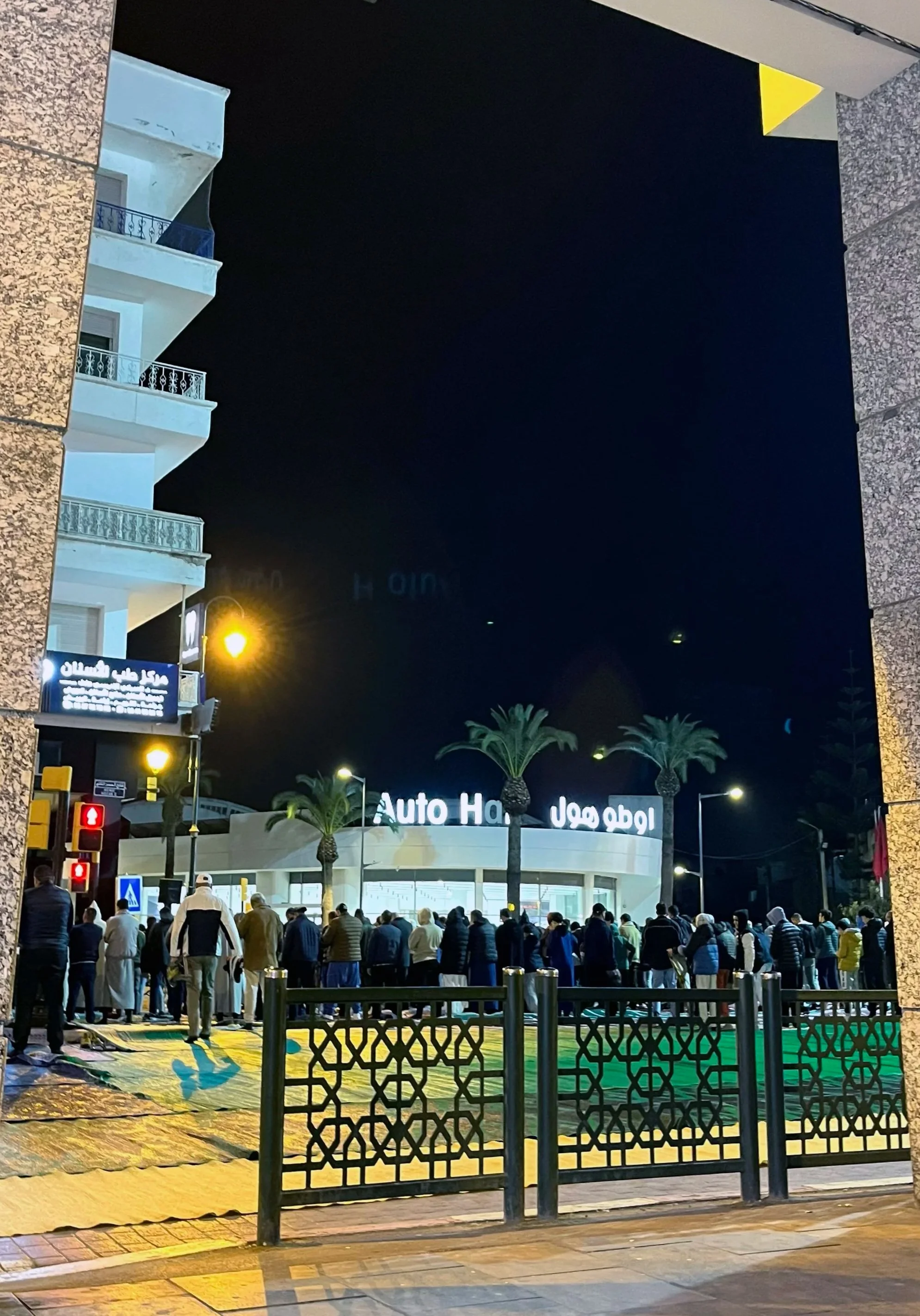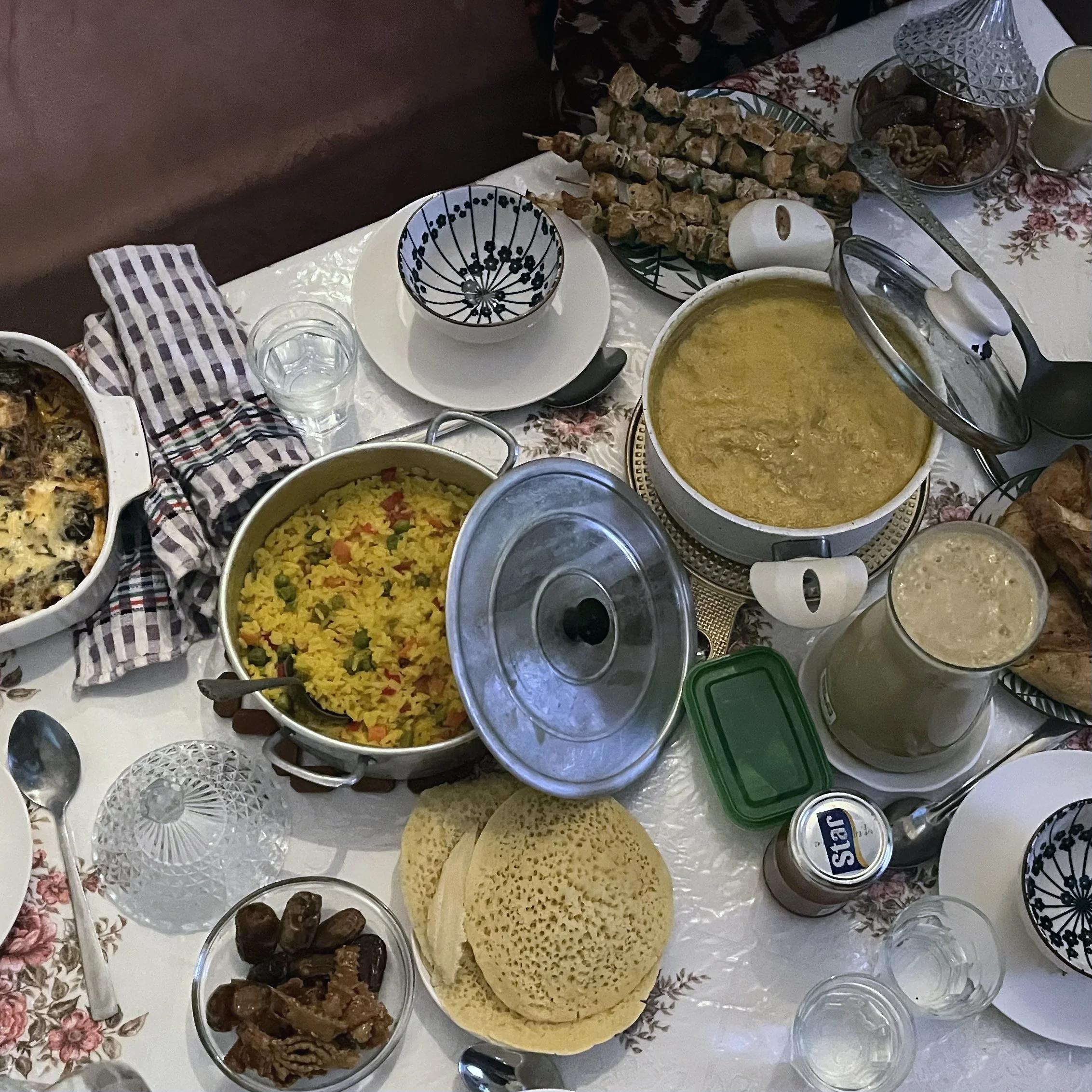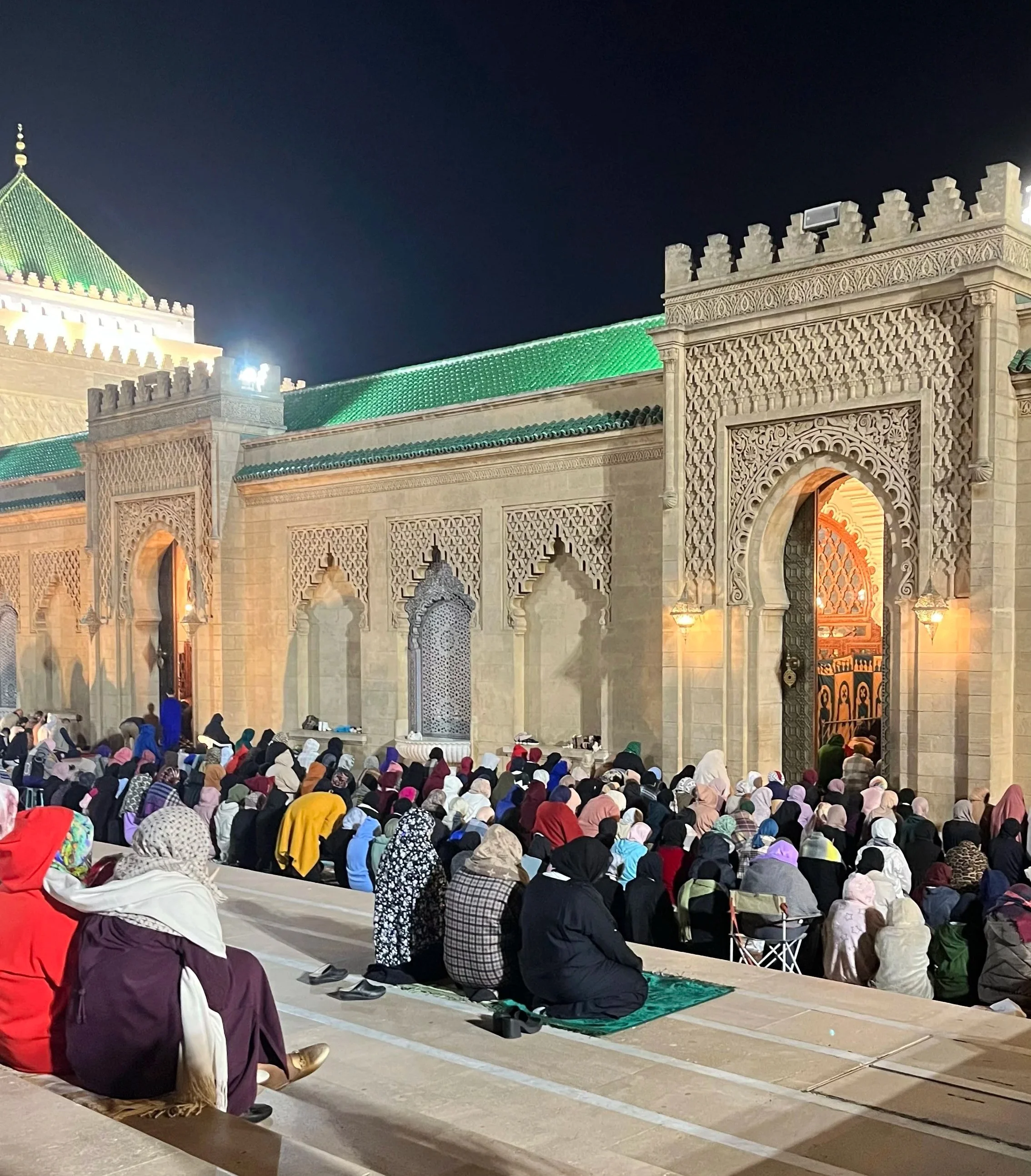Taraweeh: A Symbol of Faith and Community
Growing up in Turkey, one of my favorite childhood memories related to Ramadan was attending Taraweeh prayers. That was the only time of the year we could hang out and play with my friends outside at night, as our parents would sit out after prayers and chat alongside tea for hours.
When I came to study abroad in Morocco in the spring of 2025, Ramadan took me back to my childhood: the joyful crowd on the streets for Taraweeh, including children in their djallabas (Moroccan traditional dresses) playing with each other, groups of teenagers running to catch the prayer time, aunties and uncles taking their places ready with their prayer mats.
Taraweeh is a special night prayer observed only during Ramadan and an important ritual to feel this sense of community and spirituality in this holy month. The prayer takes its name from the word “taraweeh,” meaning resting in Arabic, since there are short breaks after each unit of prayer. Although it is possible to perform Taraweeh alone, most people prefer to join group prayers, led by an imam (Islamic leader) who has completed religious and vocal education for Quran recitation. Participants would follow the imam’s words by moving up and down harmoniously. While there are suggestions on the length of the prayer, believers can choose how many units to perform, as it is not a mandatory prayer.
While I am used to praying inside mosques in Turkey, Morocco has a tradition of praying in unity in the streets by covering the ground with prayer mats. In every city, certain streets would turn into prayer spaces during Taraweeh time. The traffic would stop for the duration of the prayers and return quickly to a busy street right after people finished their prayers and collected their prayer mats from the ground.
Taraweeh prayer on the streets of Rabat. (Photo: Irem Tuana Ciftci)
Ramadan holds a special place in Morocco, just like the rest of the Islamic world, as it is the month of community and spirituality. While Muslims fast during Ramadan to empathize with people in need, they also pay special attention to give back to their communities through offering money and meals. Fasting means not drinking or eating anything from dawn to sunset in Islam, but it also requires refraining from any harmful actions, such as breaking someone’s heart, gossiping, swearing, and lying. In Morocco, families invite other family members to break fasts together and offer home-cooked meals. I also observed my host family sharing their meals with homeless people during iftars (the first meal to break fast after sunset).
An iftar table in my host family’s house. (Photo: Irem Tuana Ciftci)
Joining group prayers in Morocco, I loved feeling the breeze on my clothes. I enjoyed the peaceful quietness during prayers that only the imam’s recitations and children’s joyful screams could break. While everyone shared silence and movements standing tightly next to each other with many rows for prayers, during the short breaks between prayer units, I could hear people taking the opportunity to talk with each other for a brief moment. Jokes were exchanged among the teenage groups, breaking everyone into laughter right before getting back to praying together.
Everyone treats Taraweeh prayers as special occasions by dressing up, as they only have thirty opportunities to join these prayers each year. Mothers and daughters would walk to prayers with their color-coordinated djallabas and hijabs, while fathers and sons would wear their djallabas and tarbouches in Morocco. I also saw many clothing stores advertising their Ramadan collections that offer more modest clothing options. Walking through the streets of Rabat, you can see Ramadan’s visibility in people’s clothing after prayers.
My friends and I after a Taraweeh prayer. (Photo: Irem Tuana Ciftci)
Children made the most of their time during Taraweeh in Morocco, coming to prayer with their families. They would take their places in the back rows and in between rows to make new friends and play games that range from playing football and tag to roller skating. As adults would not be allowed to talk during the prayers, children had the utmost freedom to enjoy their time. This freedom was given to children by Prophet Mohammed as he set an example for Muslims by treating children kindly during prayers, for instance, when he led a prayer with his grandson Hasan on his shoulder.
After Taraweeh, most people spend time with their friends and families, seeing it as an opportunity to catch up together. After a full day of fasting, people usually leave their coffee and tea dates for after prayers. While the streets are fully empty and quiet one hour before iftar, Rabat Medina (city center) becomes livelier than ever with crowds walking into shops to buy desserts and drinks around 10 p.m. My friends and I enjoyed going to a chess cafe after prayers, as most coffee shops would not close until 1 a.m. Others sat by the Corniche (a road along the coast) to chat alongside snacks for hours while watching the ocean.
Although all nights are considered holy during Ramadan, one night holds a more special place: Laylat al-Qadr. This is the night of the revelation of the Quran’s first verses to Prophet Mohammed, according to Islam. It is believed that a person is rewarded 1000 times for their good deeds that night. Hence, Muslims celebrate this night with prayers and charity in different shapes all over the world. We also went to perform Taraweeh prayers in the famous Hassan II Mosque with my friends that night, and we saw the most crowded group of people praying throughout Ramadan. After prayers, there were games and balloons for children in the Hassan Square. While taking a walk from the square to Medina, we saw music bands playing traditional Moroccan music and little girls dressed up as Moroccan princesses in kaftans and crowns sitting on Amariya (traditionally decorated chair) for photo shoots.
Taraweeh prayer oveflowing outside the mosque during Laylat al-Qadr. (Photo: Irem Tuana Ciftci)
All these little details of Taraweeh in Morocco were so similar, yet so beautifully different from my childhood memories of Ramadan in Turkey. Experiencing Ramadan in a Muslim country after many years and as an adult made me realize that Taraweeh was not only a prayer but also an excuse for Muslims to unite and enjoy each other’s company with warmth and care.




